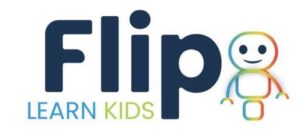At least two states — Oregon and Texas — are considering legislation that would require schools to provide lessons about the dangers of fentanyl use as concerns about overdose rates and students’ lack of knowledge persist.
Additionally, several local districts have also been proactively increasing outreach about fentanyl poisoning through school-based lessons, community forums and posting information and resources on their websites.
Advocates for fentanyl awareness, including parents who have lost their children to fentanyl poisoning, said exposure to prevention information specifically on fentanyl and synthetic opioids is vital to eliminating overdoses and deaths.
“If they know — not all of them, but many of them — probably would make a different choice,” said Jon Epstein, who along with his wife, Jennifer Epstein, is advocating for the Oregon bill and similar measures elsewhere.
Jon and Jennifer Epstein’s son Cal died at age 18 in 2020 after unsuspectedly taking a pill that included fentanyl.
School-based lessons
The bill in Oregon — SB 238 — would include education on counterfeit and fake pills, which the U.S. Drug Enforcement Agency has warned could contain inconsistent and deadly amounts of fentanyl. These fake pills are designed to look just like legitimate prescriptions — such as OxyContin, Percocet, Vicodin, Adderall, Xanax and other medicines — and have been found in every state in the country, DEA officials said.
The legislation also would require the Oregon Health Authority, State Board of Education, and Alcohol and Drug Policy Commission to collaborate on developing curricula supplements that would include education on the state’s immunity laws that protect those who report drug or alcohol use or seek medical help for themselves or others. If approved, the legislation would be effective July 1, 2024.
The Texas proposal — HB 3908 — would require fentanyl prevention and drug poisoning education in grades 6-12 for at least 10 hours annually. If the bill passes with two-thirds of the votes, it would become effective immediately. If it passes with less support, it would become effective Sept. 1, 2023.
Advocates in both states said the bills have bipartisan support and are expected to pass.
Between the second half of 2019 and the second half of 2021, deaths of pre-teens and adolescents from illicit fentanyl increased 182% with counterfeit pills present in 25% of the deaths, according to data from the Centers for Disease Control and Prevention. About 84% of the drug overdose deaths of children ages 10-19 involved illicitly manufactured fentanyl.
The knowledge gap
Although there is increased federal, state and local awareness campaigns about the dangers of fentanyl, which can be lethal at a small amount of only 2 milligrams, some surveys show limited knowledge among students.
A survey conducted by fentanyl awareness advocacy group Song for Charlie found 58% of teens ages 13-17 described fentanyl as dangerous, which is just slightly higher than the 54% who said cigarettes were dangerous.
Another data point, however, shows progress on narrowing the knowledge gap. Of people ages 13 -24 surveyed by Song for Charlie, 68% said in 2022 that fentanyl was dangerous compared to 63% in 2021.
Jennifer Epstein, Song for Charlie’s director of outreach and education, said the fentanyl epidemic has been years in the making, starting with abuse of prescription opioids, then heroin and now illicit fentanyl. “It’s going to take years to fix, so we need the kids to understand what the risks are so they can protect themselves,” she said.
Jon Epstein said drug prevention and intervention can be a complex issue, but that a school-based curriculum would “fill a gap” in helping students and schools understand the dangers of fentanyl.
https://www.youtube.com/watch?v=/UvtuVX627ow
In Texas, Stefanie Turner has lobbied for the bill titled “Tucker’s Law,” named after her son Tucker Roe, who died at age 19 in 2021 after taking what he thought was a Percocet pill. Turner is now sharing Tucker’s story in hopes of preventing others from similar grief.
Turner and Jennifer Stevens, a political and education consultant, are writing a state standards aligned fentanyl awareness curriculum for schools to use in a variety of academic courses. Their hope is to have easy-to-use lesson plans that include take-home resources and videos. They are hoping to raise close to $1 million for grade-specific lessons, resources and videos in English and Spanish.
School-based curriculum about the threats of fentanyl would be a valuable part of the effort to fight this crisis, said Ana Hilde, an Oregon-based child psychologist who works with youth who are dually diagnosed with mental health challenges and substance use disorders.
“Fentanyl has changed the landscape, and we have never experienced anything like this,” Hilde said.
Since children spend much of their day at school, it’s the logical place for this message to be sent, Hilde said. She and others add that youth need to hear these warnings not just at school but at home and from sports coaches, faith leaders, pediatricians and other community members.
“I actually think that most youth I work with can make good choices, but they can’t make good choices if they don’t have the information to help guide those choices,” Hilde said.






Leave a Reply